I thought I would create this post to show the variation in Hybrid Rugosa offspring and seedlings of Hybrid Rugosa , please feel free to add.
The first two are the cross of Fru Dagmar Hastrup (T) Type 1 X Red Ballerina. This is to show the difference of the wide leafed form and a thinner leaf form, both have excellent vigour and health.
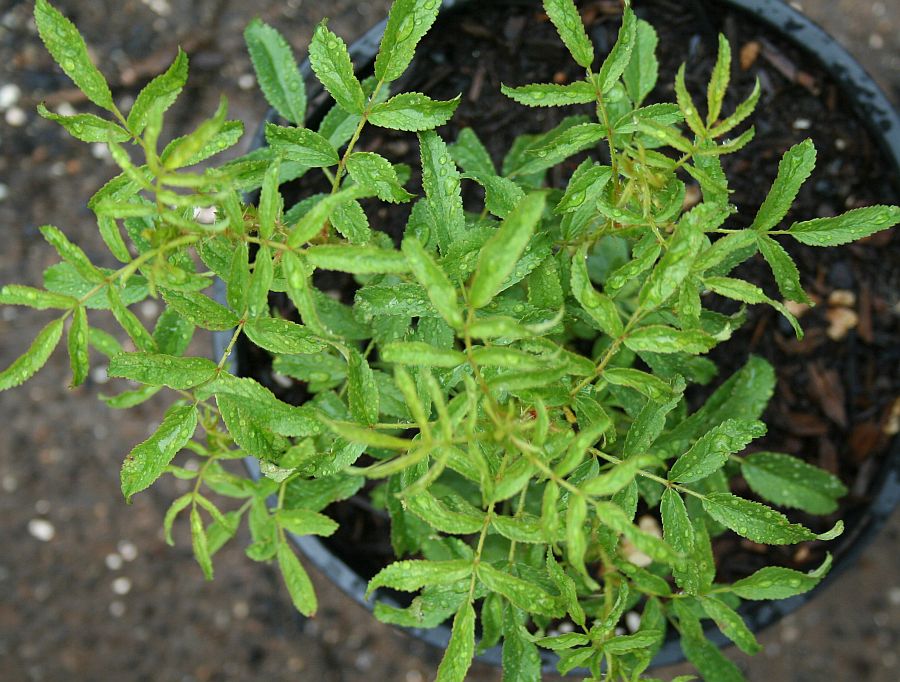
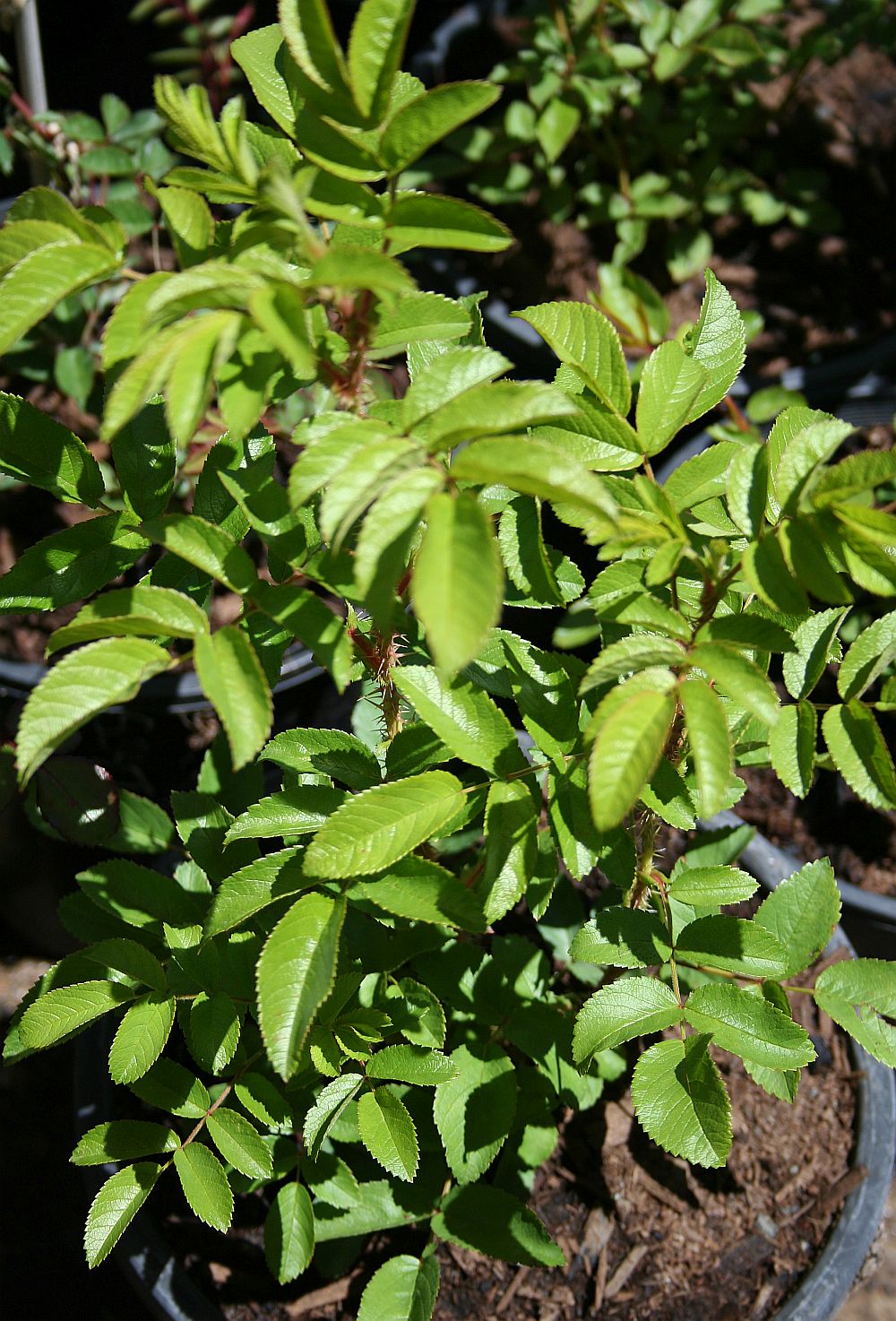
Another seedling using (Therese Bugnet X R. Rugosa) X Bon Silene
An attempt to breed a hardy Tea Rose type.
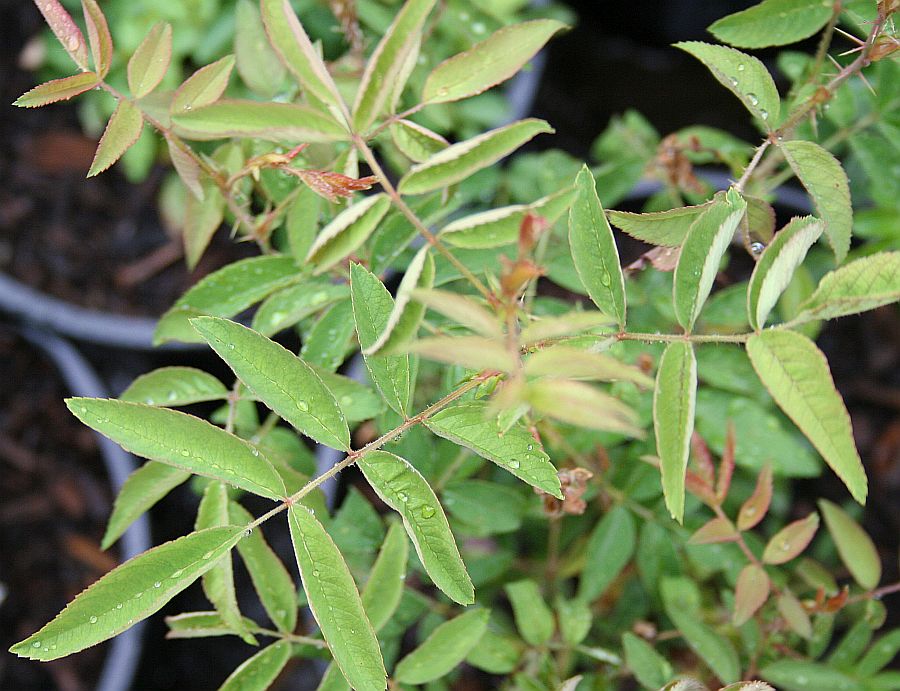
Warren, Those are some very healthy looking seedlings. My Therese Bugnet sets seeds very inconsistently from year to year.
I like your idea of bringing expand the range of Tea roses.
Chuckp
A flower (white rugosa x Rosa woodsii) OP. Rustic yes but the petals ball at 20% humidity:(
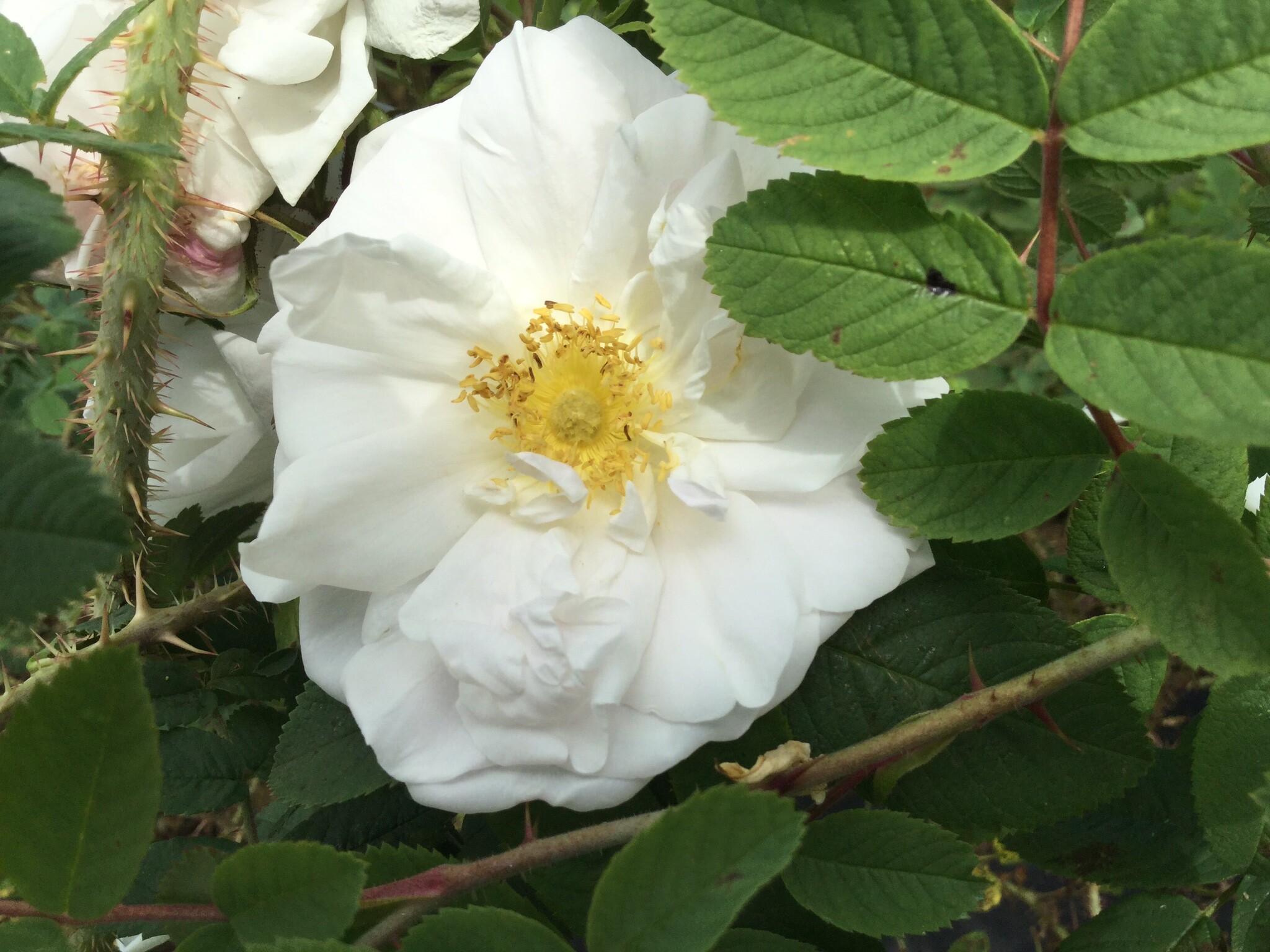
Very nice Johannes!
Thin leaf form…Actually the leaves are very thin, almost maiden-hair fern like…that’s why I saved it. This fall it’s foliage was this color…a bonus. Should bloom next year…very vigorous and deer resistant.

Out of curiosity for whether comparatively smaller hips with less seeds signaled a higher likelihood of hybridity, last year I tried a little experiment. I have 6 shrubs that are rosa foliolosa x Henry Hudson crosses. These seedlings had fairly uniform leaves. They are mostly continual or bloom in flushes with somewhat medium to large varying shades of pink, 5 single but one very fragrant dbl., all with good hip set. I only picked well developed but approx. 50% smaller than usual hips from the shrubs, mixed the seeds and got way more RF X HH seedlings than anyone might need. I planted out 5 flats, 16 ea and was quite surprised at the attractive variety of leaf styles, patterns and sizes. Looking forward to many of these blooming this next yr. and will try to get down and photograph some of the leaf patterns tomorrow. Out of the 80 plants, two did bloom, double pink, nothing spectacular but they are all enjoying much health. Have potted up about 1/2 of the seedlings, all with foliage indicating some hybridity.
Love the variety of the rugosa seedings pictured above. Other than Johannes’, are any of these of blooming size?
These are all great to see. Keep mixing it up with species roses.
Seedling S2 T17
Fru Dagmar Hastrup (T) Type 1 X R.tunquinnensis. The bloom isn’t much but it might contribute something of value when used in breeding next year.
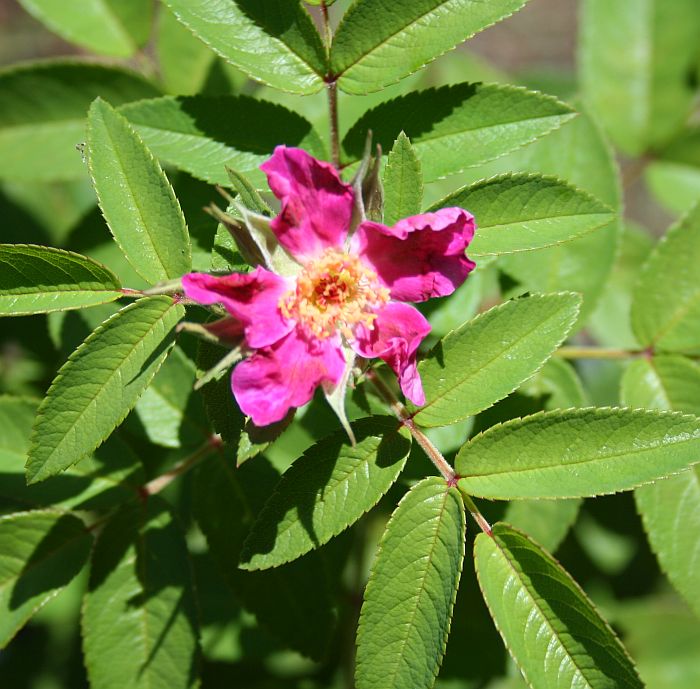
That is actually a quite nice bloom from a specie cross. I know some specie crosses do produce great first blooms but many others take up to 3+ yrs to reach their potential. Especially among the first blooms. I have posted one of my open pollinated rugosa/foliolosa seedlings. Because I recently changed cameras, I also changed the app for downloading and seem to have ‘lost’ some photos. Shall look for them.
Here are a few of the thin leafed varieties-I think they might be Rosa Woodsii crosses.That would be (R.foliolosa x Henry Hudson) x R.woodsii? One of the mother plants is between two woodsii, one of which reblooms all summer long.
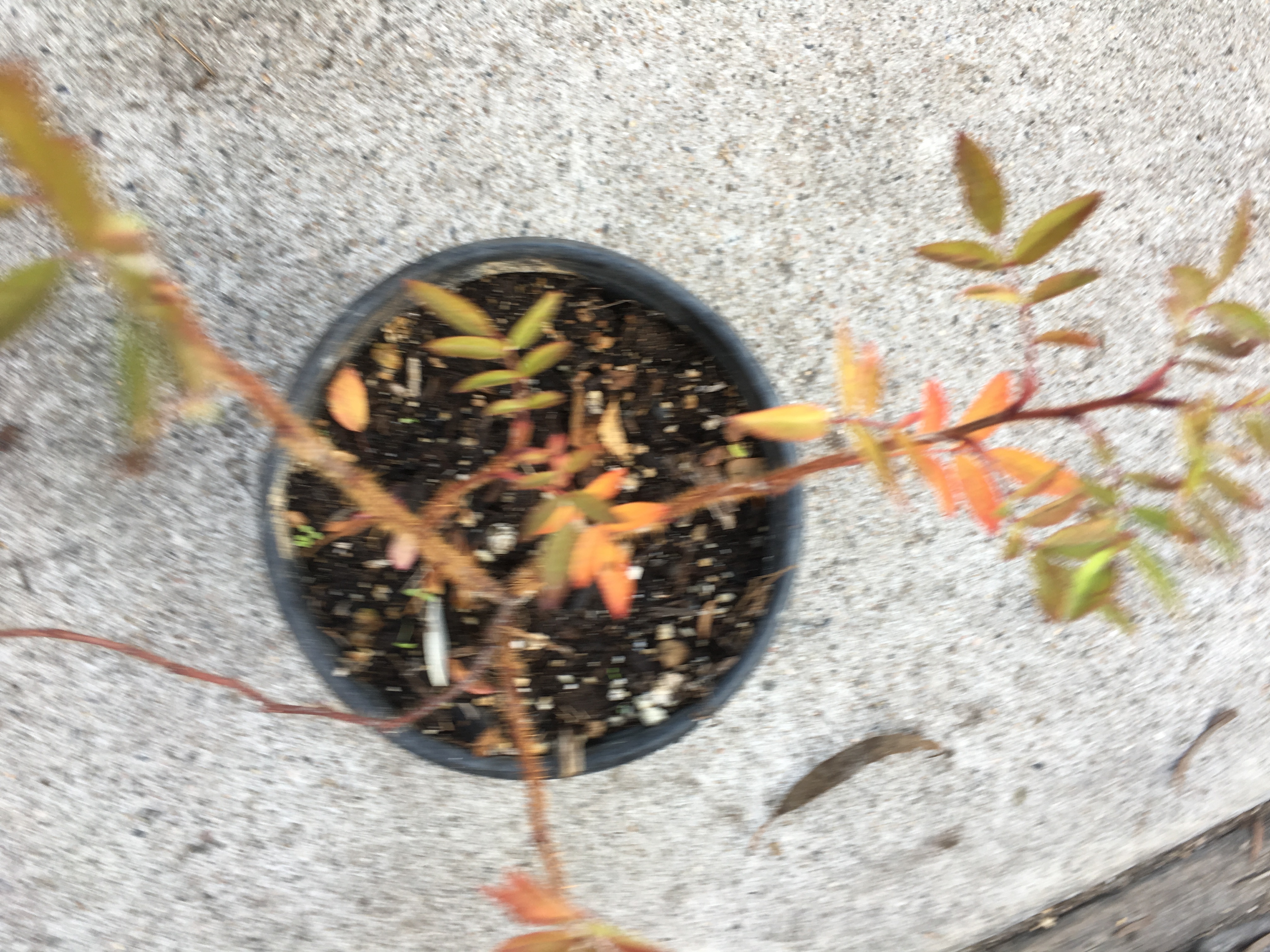

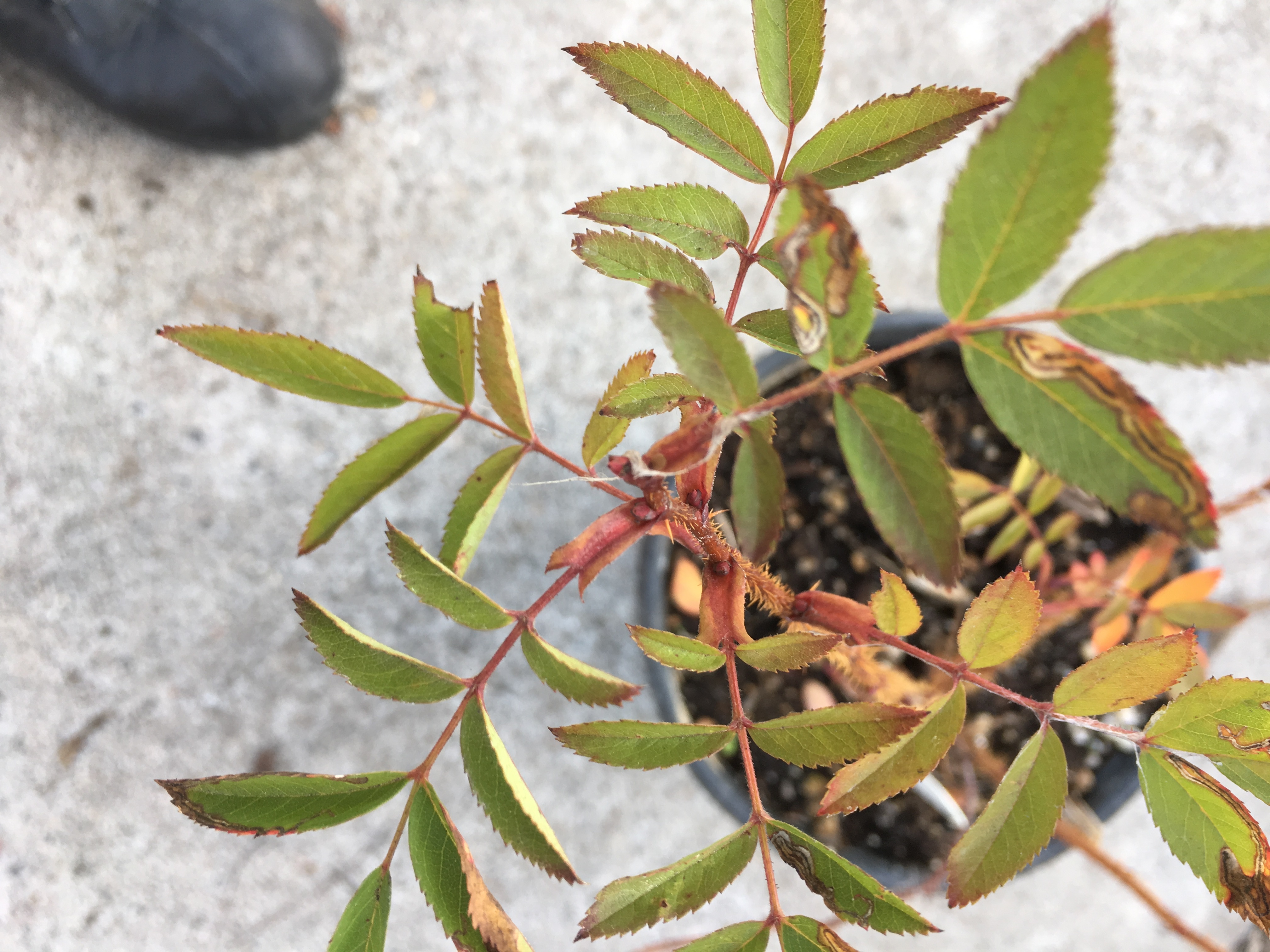
Here are a couple of the shiny leafed varieties: Rosa foliolosa x Henry Hudson Open Pollinated.
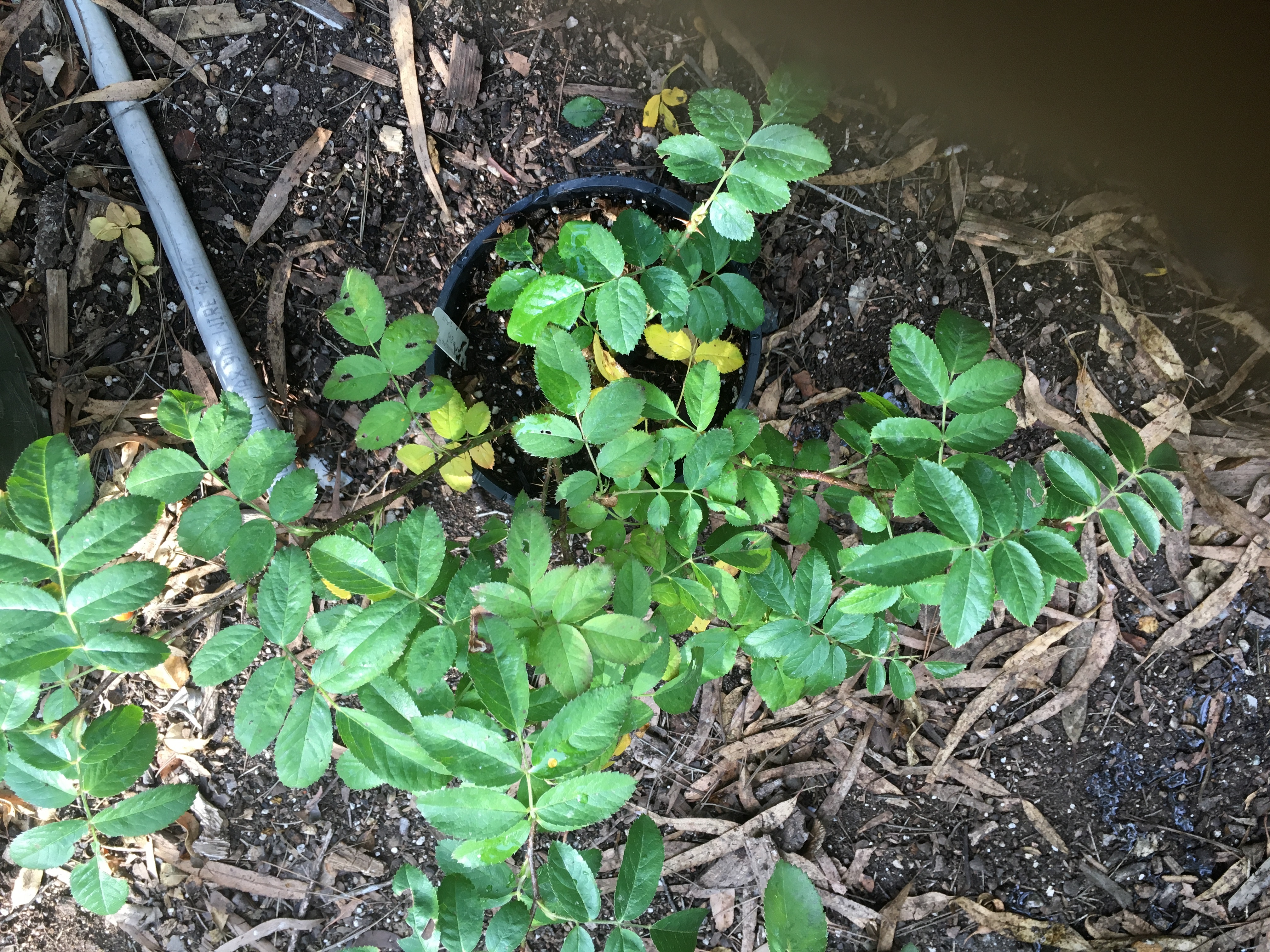

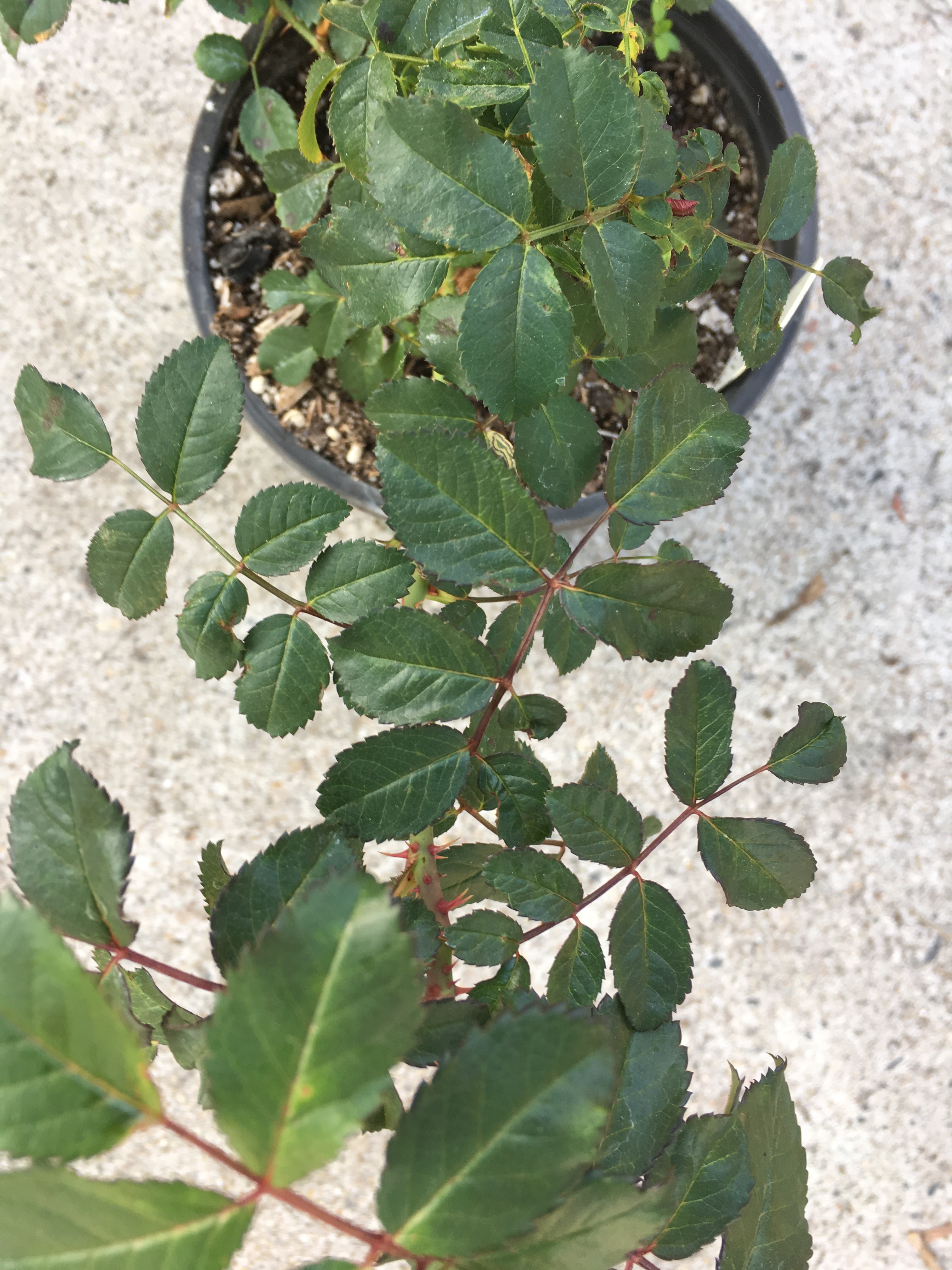
Did not photograph the short ones-they were pretty much leafless sticks, but the following were very green with few signs of dormancy. Also very tall or sprawling. These will be confined to pots, but they are not slowing down in the one gallons. At least one has leaf and structure of Crepuscule:
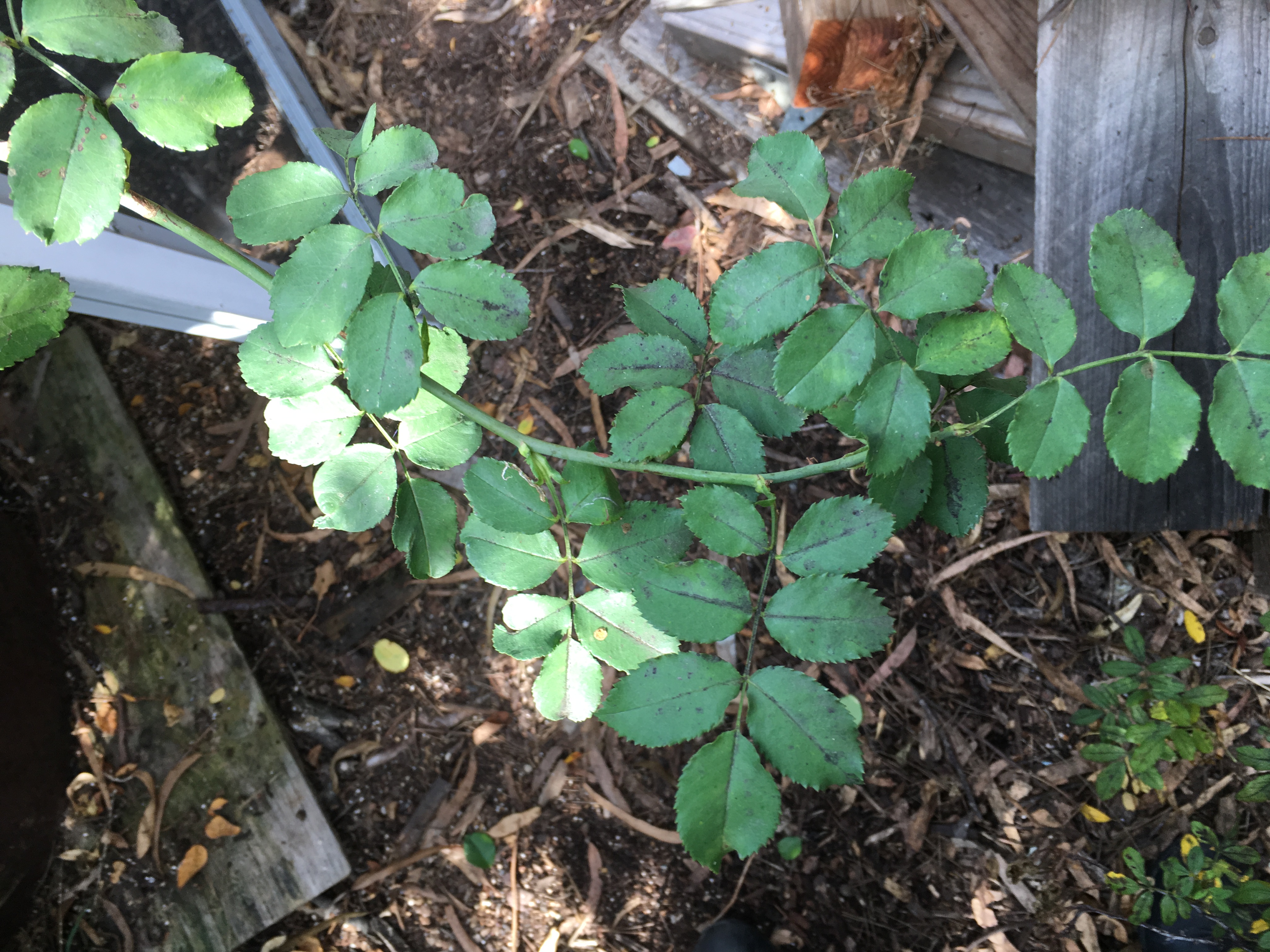
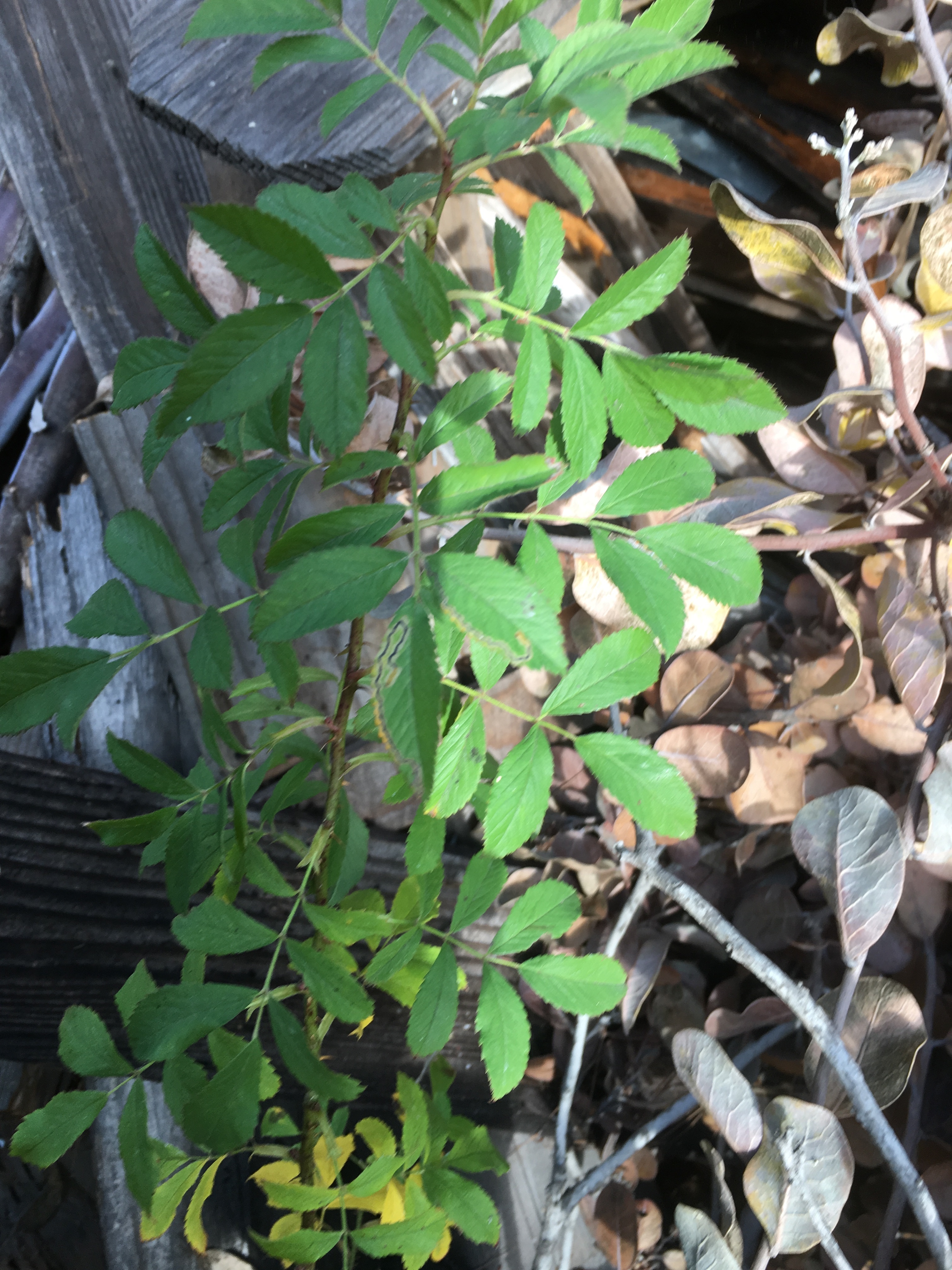

Jackie–not many thorns on that last climber.
There are less than usual on the first 18", but they are there-not so thick and bristly but definitely there, and the backs of the leafs are less prickly also. What is there near the leaf nodes are not lightweight “bristles” but somewhat large thorns, if you know what I mean. (I know that technically they are all bristles but I reserve the right to differentiate)
These are two Fru Dagmar Hastrup (T) Type 1 X Bamako. One has flowered the other Iam waiting
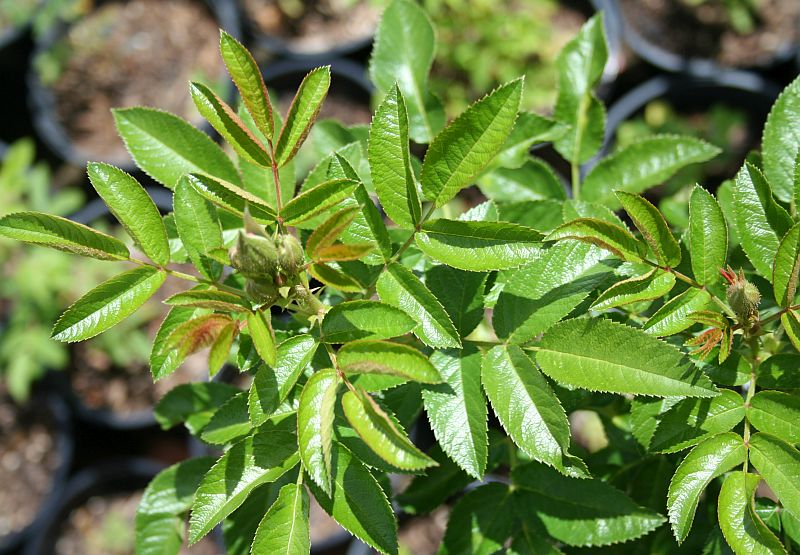

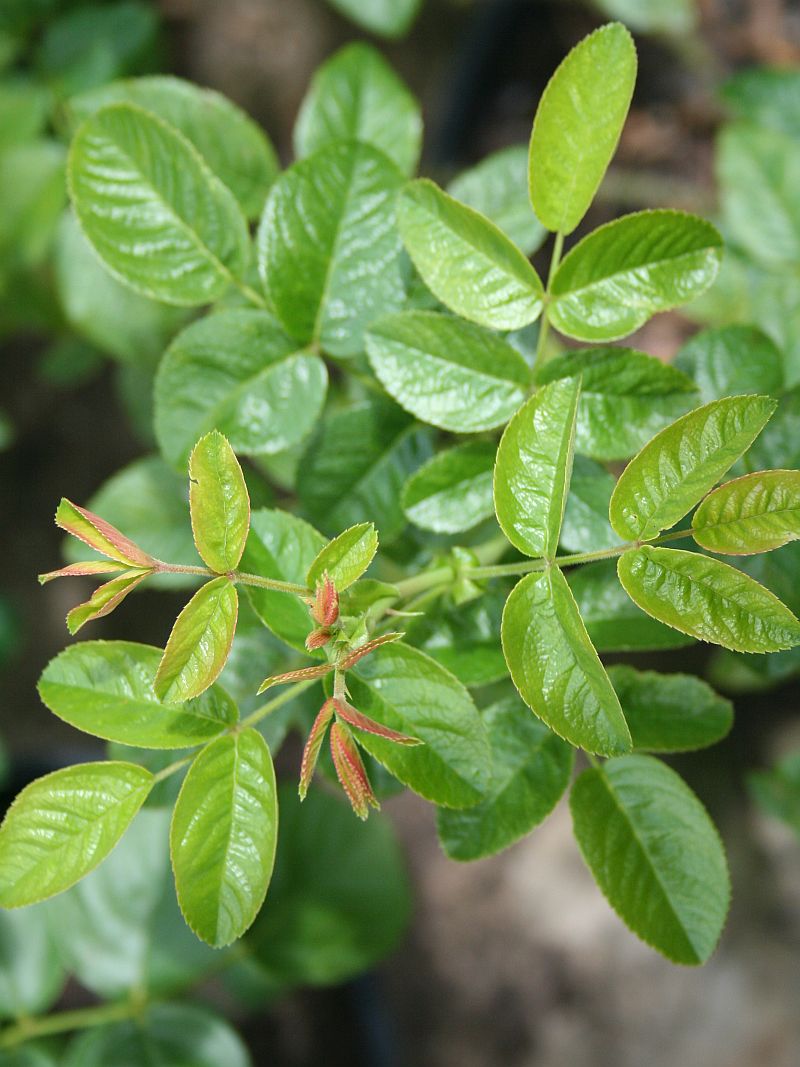
These are three Fru Dagmar Hastrup (T) Type3 X Apache
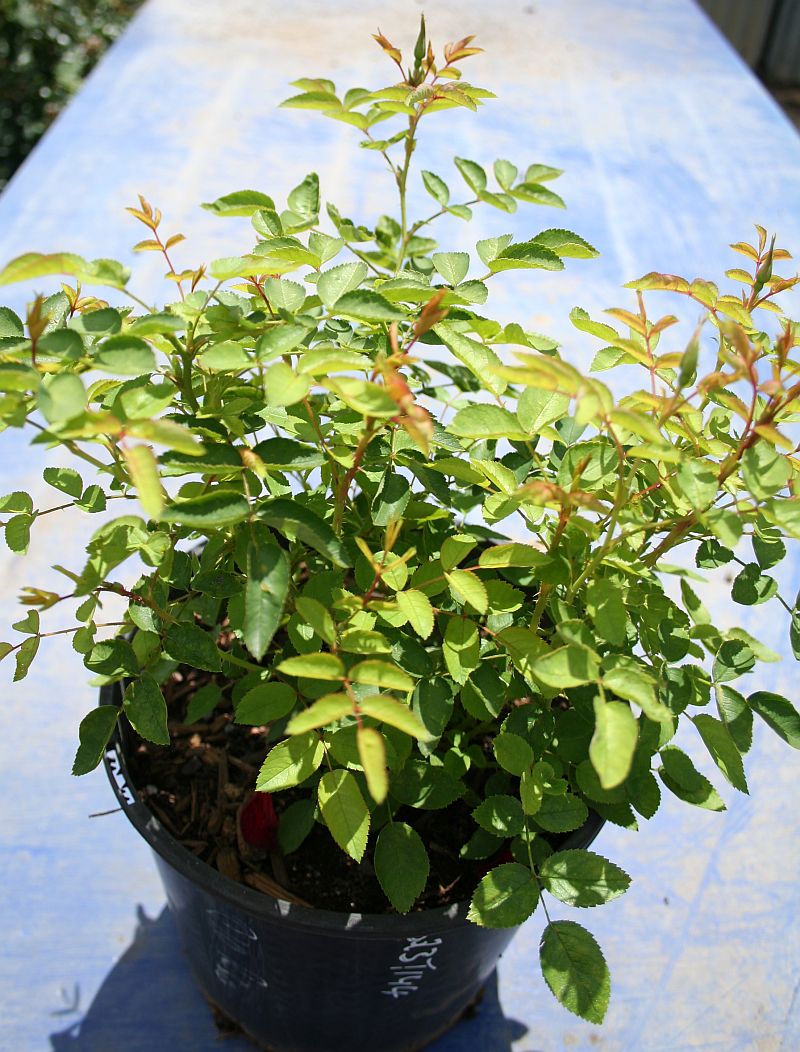
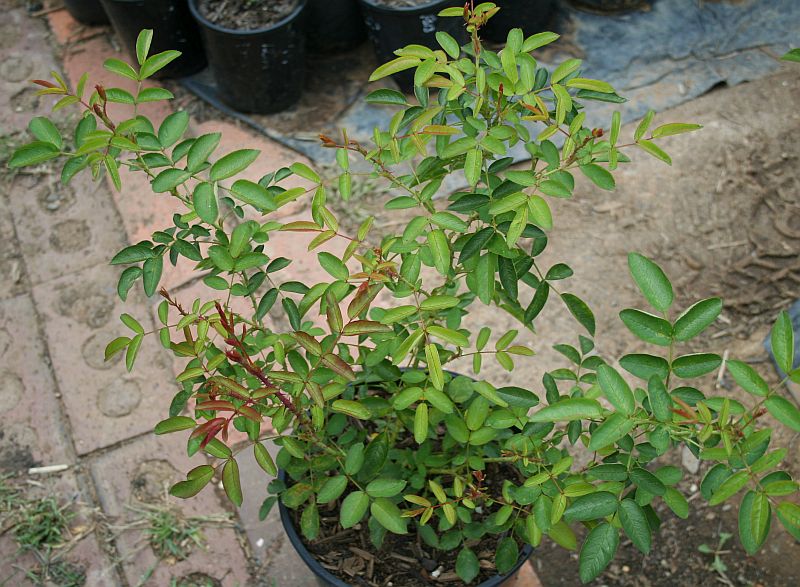
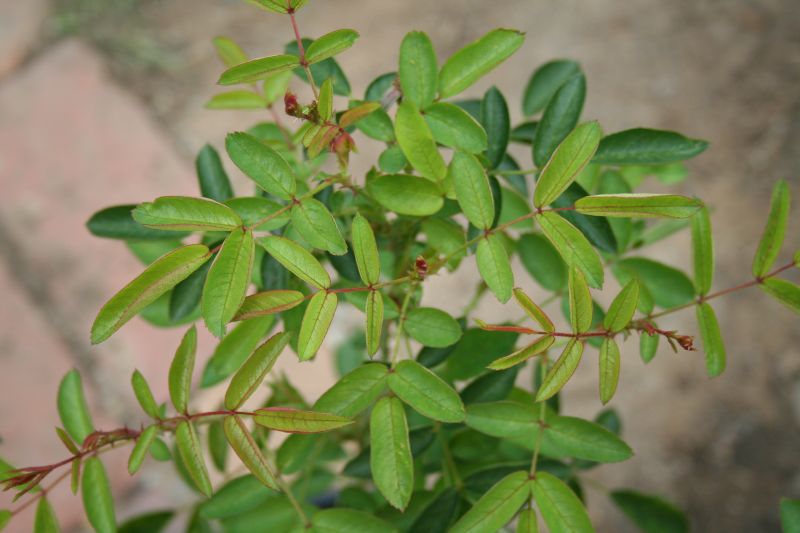
The next three are Fru Dagmar Hastrup (T) Type1 X Red Ballerina (Harkness). The first one has very short compact growth.



The next two are
Fru Dagmar Hastrup (T) Type 1 X R.nitida
Fru Dagmar Hastrup (T) Type 1 X a seedling of Ann Endt (T)
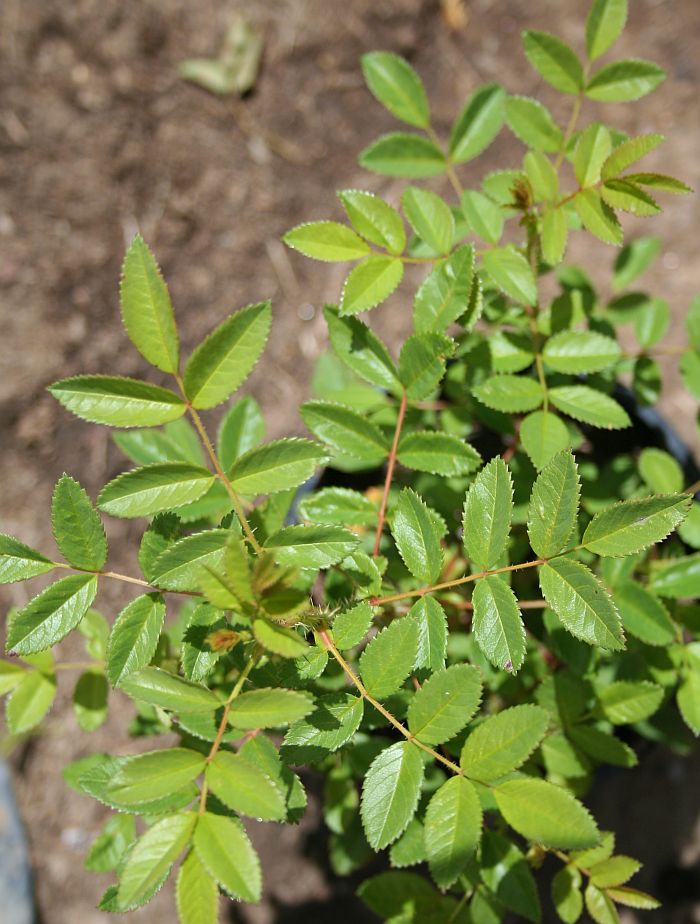


The last two are of a Fru Dagmar Hastrup (T) Type 2 X [Disco Lemonade X ((Sympathie X R.virginiana) X Elara)]

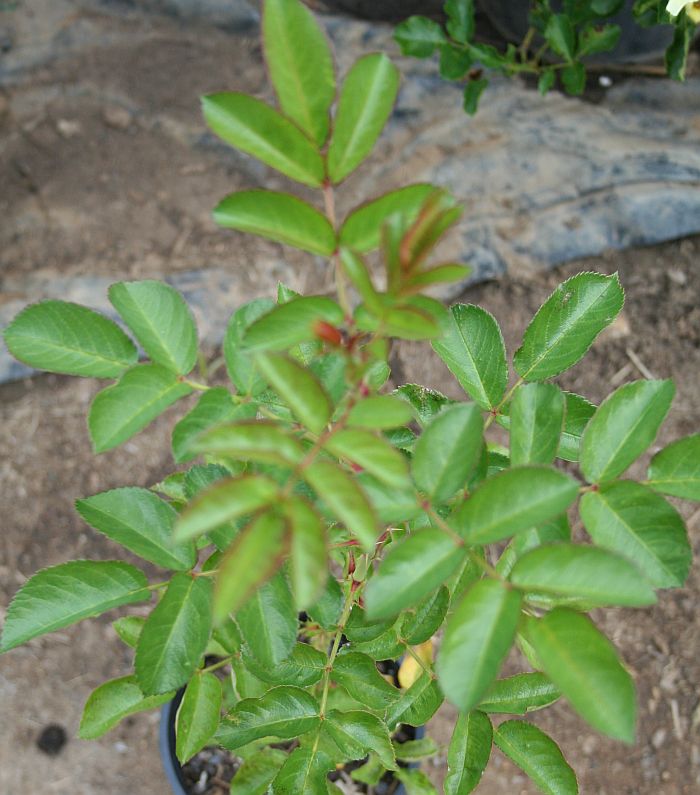
Warren, Do most of your rugosa crosses do at least a short dormancy? You are in a similar temperature zone as I am, and it looks like some of my OPs will have to be forced into a dormancy-although it has been unusually warm this fall and into Dec. Your foliage is wonderful in its variety and appearance.
I have a couple very short, even dwarf maybe, crosses with a wichurana hybrid, and a couple of very lacy but fragile looking crosses with .(folksinger x(royal Edward x (rugosa alba x (J w fargo x (Donald prior x r. Arkansas) x mixed r arkansana hybrids)))) (a Henry Kuska seed/seedling) #310. That is one that bloomed as a seedling, not especially a rugosa type bloom but for sure pink. I wondered if perhaps these were not entirely compatible but kept them anyway since the next yr will surely tell me something. The wichurana cross is totally dormant, the #310 cross almost dormant and looking even more fragile right now—not at their photographic best.